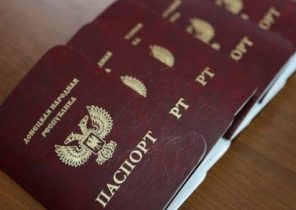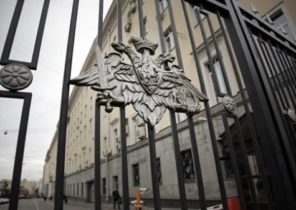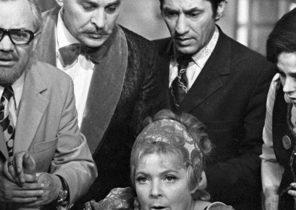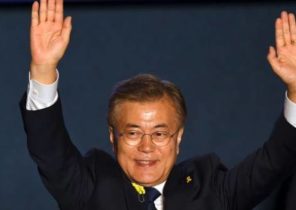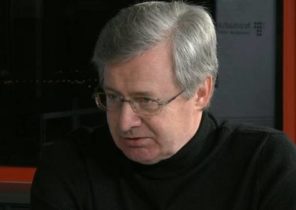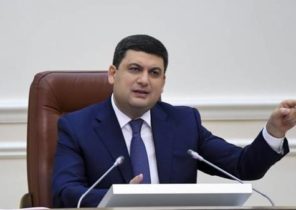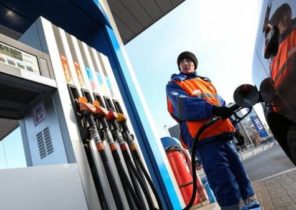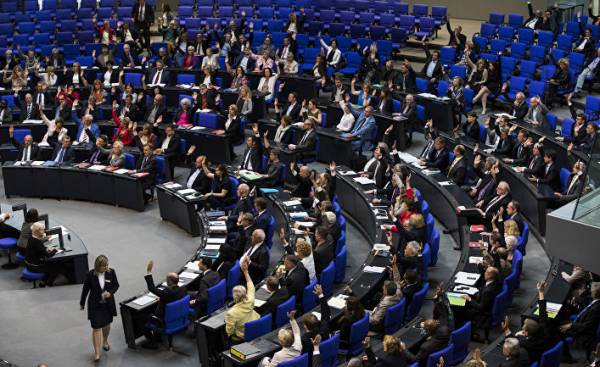
When the President of Russia Vladimir Putin in 2014 has sent its “little green men” in Crimea, ordering them to Annex the Ukrainian Peninsula, he created a problem that will preoccupy many more generations of politicians. It was clear that the international community does not recognize such a rip-off, but it was clear also that Russia will not return the Peninsula to Ukraine. If someone is convenient to call this situation “prolonged, but temporary”, you may call it that way.
The Chairman of the FDP and its leading candidate in the upcoming elections to the Bundestag Christian Lindner is well done. Thus he has not violated any taboo, but only added to the confusion in the debate on sanctions against Russia. And this turmoil profitable in the long run only one person: Vladimir Putin.
The one who will cancel the sanctions over the Crimea, will only provoke new violations
In anticipation of the annexation of Crimea and the bloody conflict in Eastern Ukraine, Putin knew that he did not have to fear a harsh response. After all, he remembered the events surrounding the war with Georgia in 2008, which in no way influenced the attitude of the West towards Russia. However, the master of the Kremlin was not ready for unity, which has for the past three years show the US and the EU, who introduced economic and political punitive measures against his country. However, he hopes that the West will split into two camps, and the sanctions lose their database due to the lack of support from the population. And these hopes are not unfounded.
Promising for Putin are the differences between Europeans and Americans about the new law on sanctions adopted by the U.S. Congress. It’s blocking for the President trump the way to the rapprochement with Moscow, but also provides penal sanctions against European companies involved in the project on construction of gas pipeline “Nord stream — 2”. In fact, this project raises many doubts, because that may interfere with the independence of the EU from gas supplies from Russia. It also threatens countries such as Ukraine, which he will lose in profits from gas transit. And he threatens to deepen the conflict between the Western and Eastern countries-EU members.
However, Washington, by and large, is not the case. To a much greater degree the feeling that he is simply defending the interests of us exporters of liquefied natural gas. This causes doubt that the Americans and Europeans really are on the same side of the barricades. The aim of the Congress was to protect sanctions from trump. Would be absurd if American law weakened the position of the West towards Moscow.
Up to the present time these positions are based on a simple principle: sanctions were imposed in response to the unacceptable state of Affairs and will be cancelled only when the current state of Affairs will change. Mr. Lindner apparently did not notice that originally made the difference between the situation in Crimea and Eastern Ukraine. Sanctions imposed in response to the annexation of the Crimea, is much “leaner” and given to understand that the West does not accept the violation of international legal norms. Economic sanctions affect in the first place, seized the Peninsula, and can be circumvented, if only the suppliers and the governments of various countries will allow a “cheat”, as happened with the recent delivery of gas turbines for Siemens in the Crimea.
Much bigger and more painful for Moscow, however, the sanctions for its support of separatists in the Donbass. Russian authorities have in the form of the Minsk peace agreements enough tools to these sanctions have been relaxed or even abolished.
For Russia, the preferred response would be if the sanctions were lifted without significant reciprocal steps. Therefore, politicians in the heat of the election campaign inadvertently or intentionally pour water into the “mill” for Putin, arguing that the West should first take certain steps to “get the situation out of the impasse”. Such statements are consistent with the interests of Russia, which, of course, would prefer to put an end to this threat of a protracted conflict. At the same time, they seem to confirm that the West is also at least partially to blame for this crisis.
But this violates causality: the sanctions are not aggression. They are just quite adequate reaction to the Russian aggression against a neighboring state and a measure for the protection of Ukrainian sovereignty. But not only that. West thus makes clear that the forced migration of borders in Europe will not remain without consequences. And the readiness of Europe to patiently repeat the signal depends on its future. Those who seek in this situation “short way” to the impasse, in fact they are driving the situation further into deadlock.
